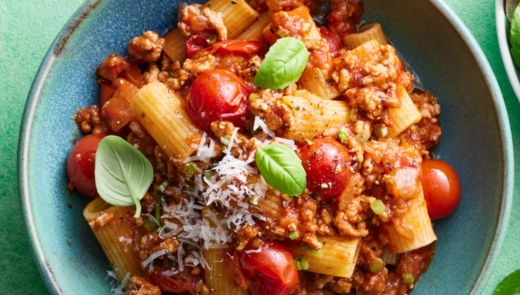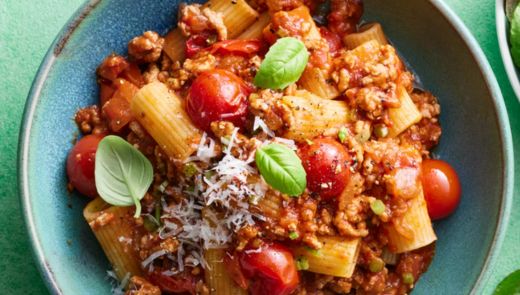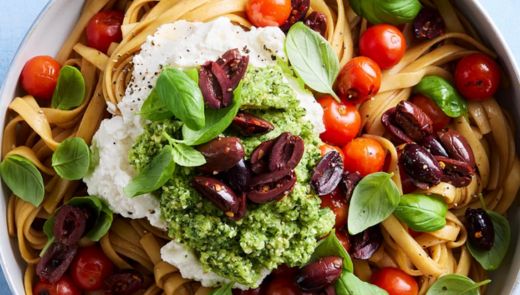
Benefits Explained…
- Goji Berries
Goji berries contain 18 amino acids, all 8 essential amino acids and have 21 trace minerals (primarily zinc, iron, copper, calcium, germanium, selenium and phosphorous) as well as Vitamins B1, B2 and B6 and vitamin E. Woah! They are some of the highest anti-oxidant containing foods in the world which help to neutralize free radicals linked to cardiovascular disease, cancer and age-related conditions (and 2 key antioxidants for healthy vision).[i]Add them to your juice, smoothie, salad, in trail mix or on top of your oats in the morning!
- Cacao
Cacao is the nut of a fruit of an indigenous American jungle tree. It contains the highest concentration of antioxidants of any food in the world which protect us from disease and age related illness. By weight, cacao has more antioxidants than red wine, blueberries, acai, pomegranates and goji berries combined![ii] Cacao is a great source of Magnesium (supporting the heart, increasing brain power and helping to build strong bones among other functions) as well as iron (important in keeping our blood healthy). Cacao also produces serotonin in our body which improves our mental well being and diminishes anxiety. [iii]
Try adding a tablespoon of cacao into your favourite smoothie or blend into coconut water, or add raw cacao beans into your trail mix.
- Acai
Acai is a little blue berry originating in the Amazon Rainforest which aids digestion, supports nerve and brain function and promotes a healthy cardiovascular system[iv]. It is rich in minerals and vitamins (especially calcium, phosphorous, beta-carotene and Vitamin E). It contains high levels of essential fatty acids (including omega-3 & omega-6) and 19 amino acids necessary for building healthy proteins in the body.[v] Try adding acai berries to yoghurt, granola or oatmeal or into your juices or smoothies.
- Blueberries
Blueberries may be small but they pack a huge punch! They are filled with antioxidants which help neutralize free radicals linked to heart disease and other illness’. A study found that women who eat 3 or more serves of blueberries or strawberries a week may reduce their risk of heart disease[vi]. Blueberries are also a good source of Vitamin C, E, riboflavin, potassium and nitrate. They have anti-inflammatory properties and insoluble fiber assisting with the digestive process. Add blueberries to yoghurt, cereals and oats or in your smoothie. We love a banana and blueberry smoothie!
- Quinoa
Quinoa is a seed but is usually considered to be a whole grain. It has the complete amino acid profile meaning that you are providing your body with the entire 9 key building blocks for making protein. Quinoa can help regulate your blood sugar levels (it has a low glycemic index so won’t spike your blood sugar) and control weight (it is high in protein, making you feel full longer and low in calories). Rich in manganese and fiber, quinoa helps to support a healthy cardiovascular system. Fiber in Quinoa also aids with digestion. Quinoa is also a rich source of iron helping to keep your red blood cell levels healthy.
Quinoa can be enjoyed at any meal. Try our TAPfit Quinoa & Pumpkin Salad!
- Kale
Kale is high in fiber aiding in digestion and elimination and low in calories and fat. It is high in iron keeping your red blood cells healthy and high in Vitamin K to protect against cancers. Kale is also high in Calcium, Vitamin A (keeping your skin glowing) and Vitamin C (assisting in hydration and supporting your immune system and metabolism). Kale is an anti-inflammatory food and can assist with lowering cholesterol. Put Kale in your juices, salads, dips and sauces or add some olive oil and seasoned salt and bake it in the oven to make Kale Chips.
- Lemon
Lemons are rich in Vitamin C boosting your immune system and assisting you in fighting colds and flu’s. The high levels of Potassium in lemons can assist with brain and nerve functioning and help with depression and stress. Lemons are also great for your skin promoting collagen production and keeping wrinkles at bay! Why not try lemon squeezed in water in the morning!
- Avocado
Avocado is high in fat but it is heart healthy monounsaturated fat which has many health benefits. Avocado’s are richer in Potassium than Bananas! Potassium is important in assisting your brain and nerve functioning and supporting healthy blood pressure levels. They are high in fiber aiding digestion and elimination and helping to support weight loss. Avocado’s contain a high amount of Vitamins C, K and B6 and nutrients lutein & Zeaxanthin which are incredibly important for eye health.
Avocado’s are easy to incorporate into your diet. Try ¼ avocado on toast instead of butter, add it to your green smoothie or mix it up to make guacamole.
- Beetroot
Beetroot is a great source of antioxidants, vitamins (C&B), potassium and fiber. Beetroots are one of the richest sources of glutamine, an amino acid, helping to maintain a healthy intestinal tract.
- Almonds
Almonds are a high quality protein rich in Vitamin E, calcium, magnesium and potassium. The protein, fiber and fat in almonds can assist in weight control helping you feel full for longer. The magnesium in almonds can also help regulate blood sugar levels helping to reduce cravings. Magnesium is also critical in preventing heart attacks and hypertension.[vii]




